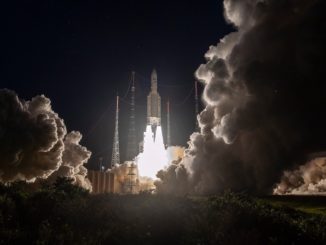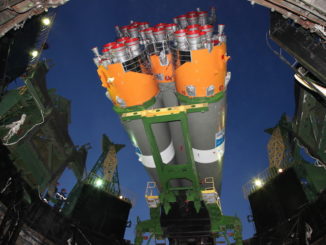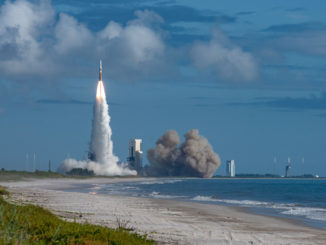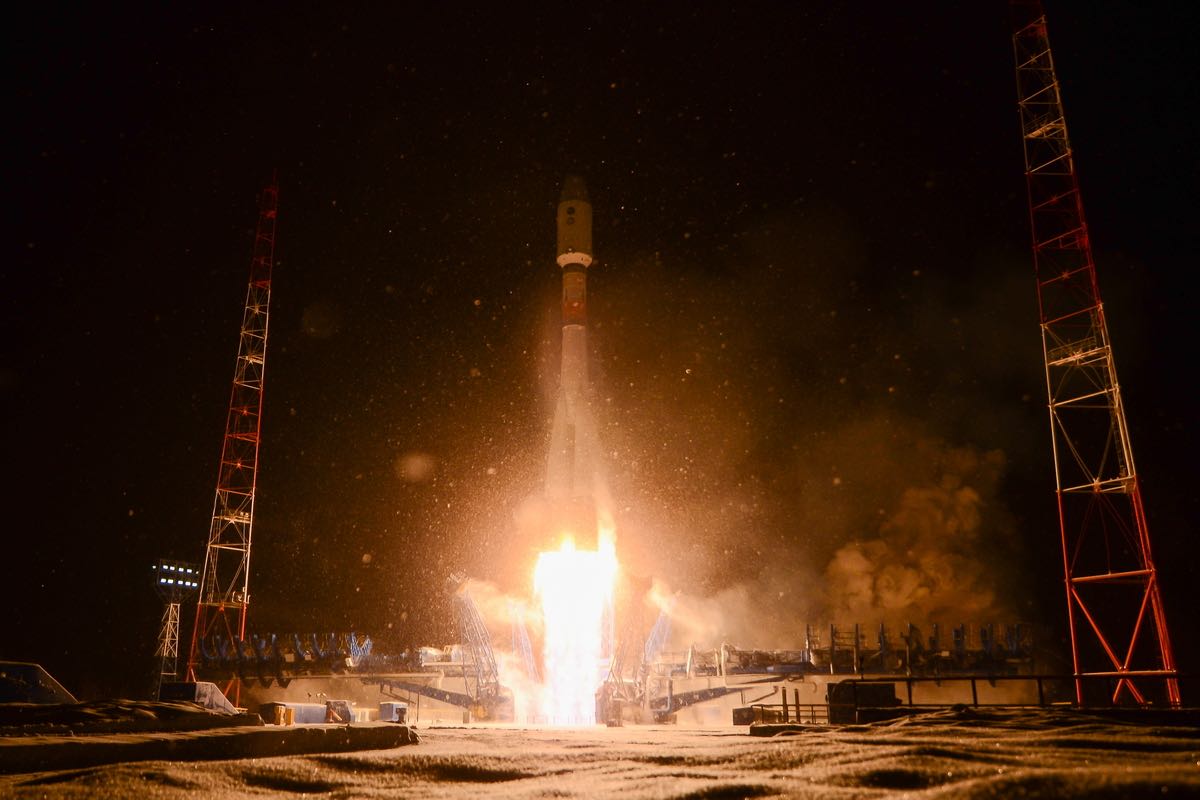
Russia sent a spy satellite into orbit aboard a Soyuz rocket Feb. 2 from a snowy launch pad at the Plesetsk Cosmodrome, setting off on a mission to detect, locate, and characterize foreign military radio signals.
The military satellite took off at 2045 GMT (3:45 p.m. EST; 11:45 p.m. Moscow time) Feb. 2 on a Soyuz-2.1b rocket, according to the Russian Ministry of Defense. The defense ministry did not identify the type of satellite on the rocket, but the launch trajectory and the orbit of the payload indicated it is the next in a series of Russian military Lotos S1 intelligence-gathering spacecraft.
The Russian military said the Soyuz-2.1b rocket launched from Pad 4 at Site 43 at Plesetsk, located in far northern Russia about 500 miles (800 kilometers) north of Moscow.
After heading northeast from Plesetsk, the Soyuz shed its four liquid-fueled first stage boosters, second stage, and payload fairing. The Soyuz third stage injected the Russian military’s fourth Lotos S1 surveillance satellite into an orbit ranging in altitude between 152 miles (245 kilometers) and 559 miles (900 kilometers), with an inclination of 67.1 degrees to the equator.
The orbit matches the altitude and inclination of the previous Lotos satellites. Russia launched first Lotos test satellite in November 2009, then deployed a series of operational Lotos electronic intelligence-gathering spacecraft — known as Lotos S1 satellites — with launches in 2014, 2017, and 2018.
The satellite is officially named Kosmos 2549, keeping with the Russian military’s spacecraft naming scheme.
The new Lotos S1 spacecraft is expected to maneuver the satellite into a circular 560-mile-high (900-kilometer) orbit before it enters service for the Russian military to eavesdrop on radio communications.
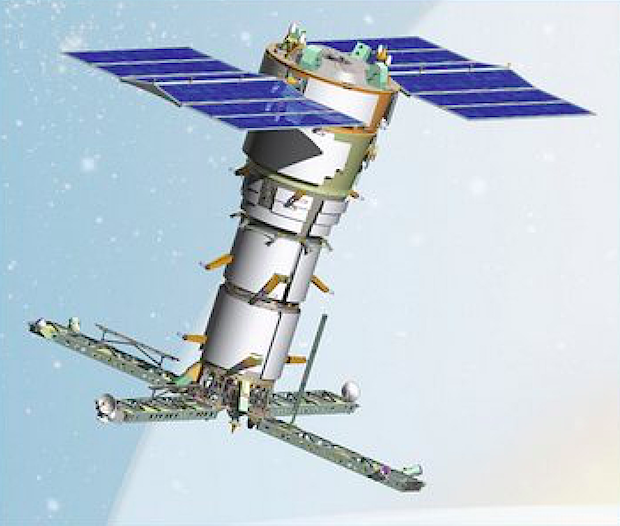
The Lotos S1 satellites are built by KB Arsenal, a Russian military contractor in Saint Petersburg, in partnership with TsSKB Progress. According to the manufacturer, the Lotos S1 satellites weigh around 13,000 pounds (6,000 kilograms) fully fueled at launch.
The Feb. 2 mission was the first Russian space launch of the year.
Email the author.
Follow Stephen Clark on Twitter: @StephenClark1.

